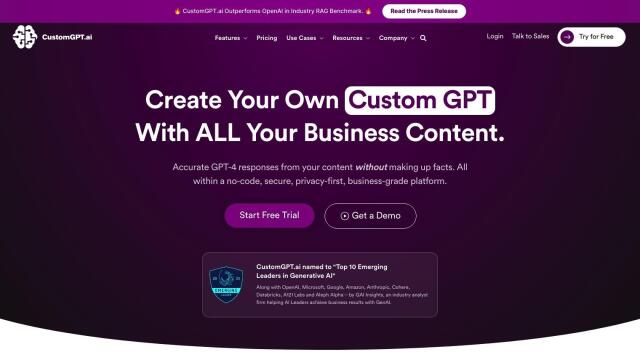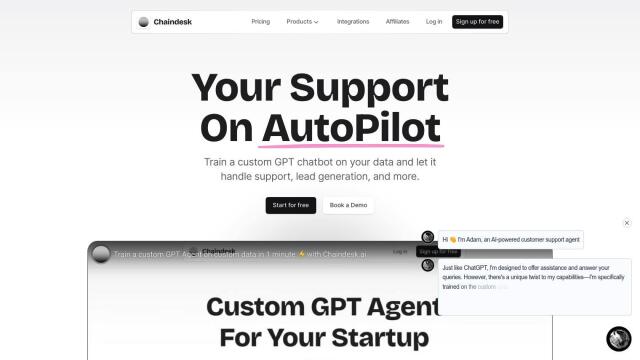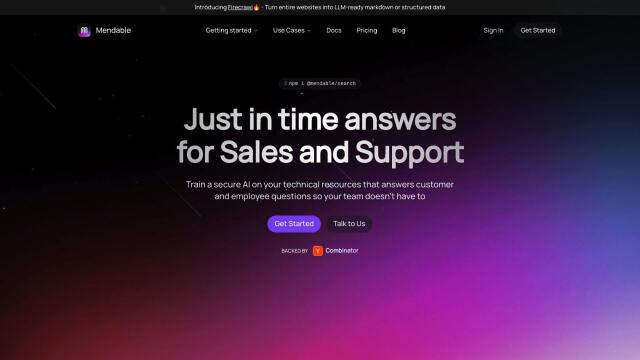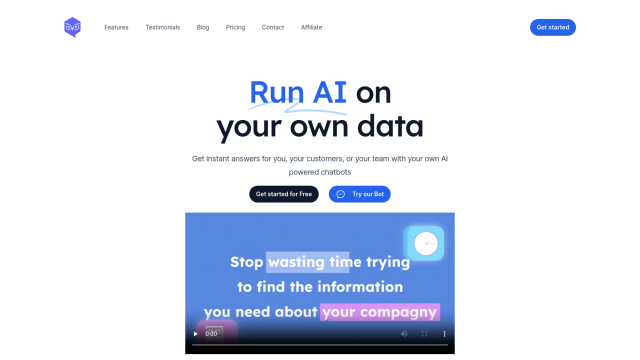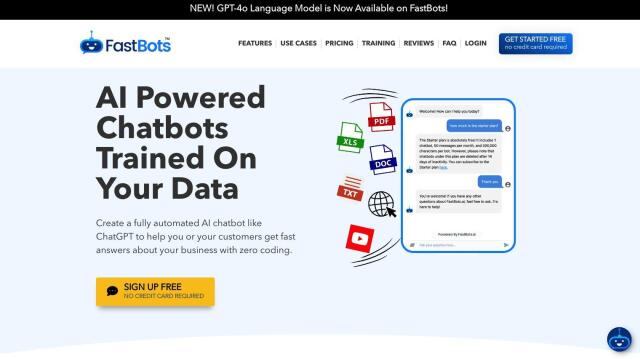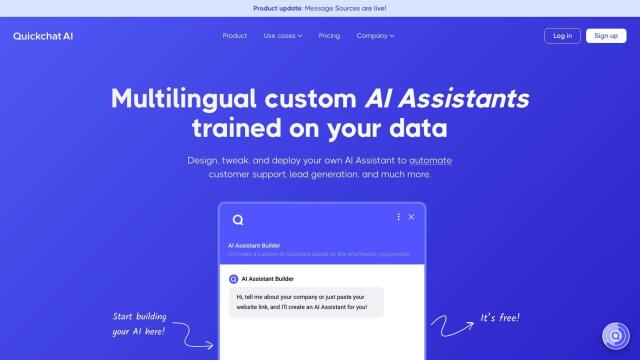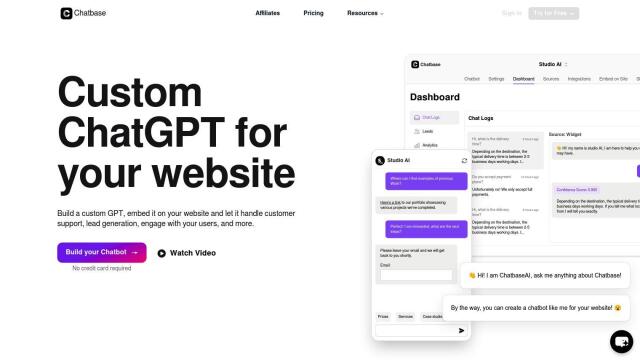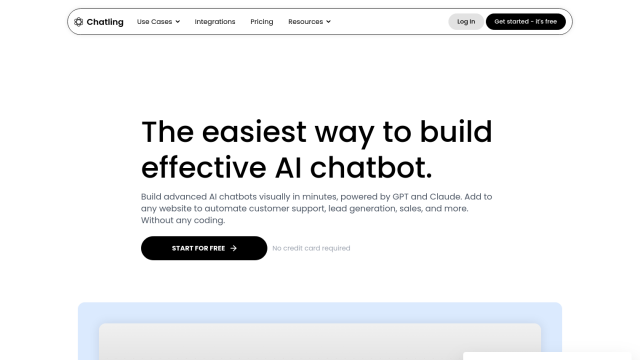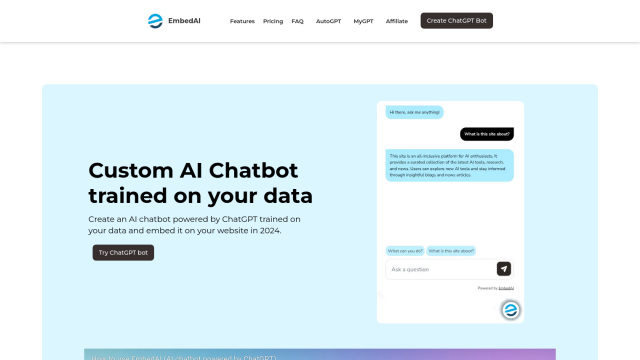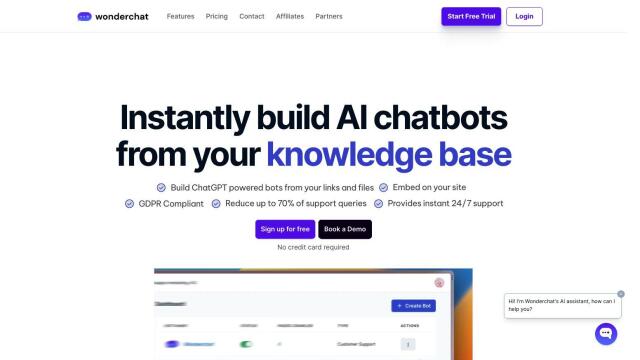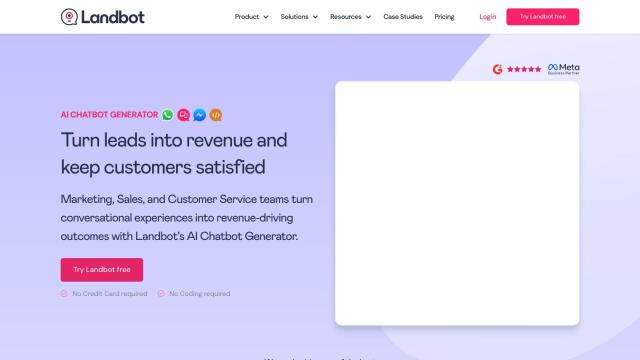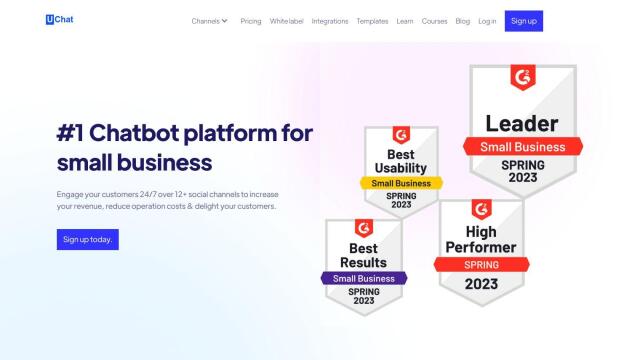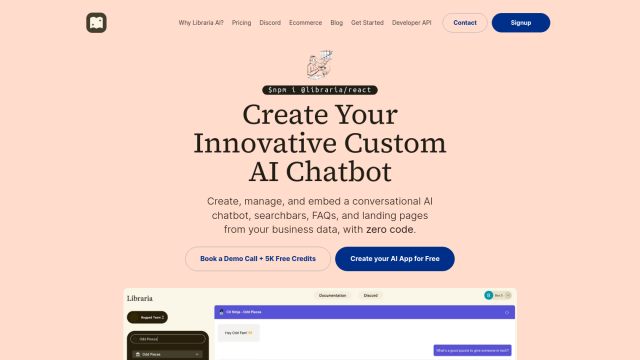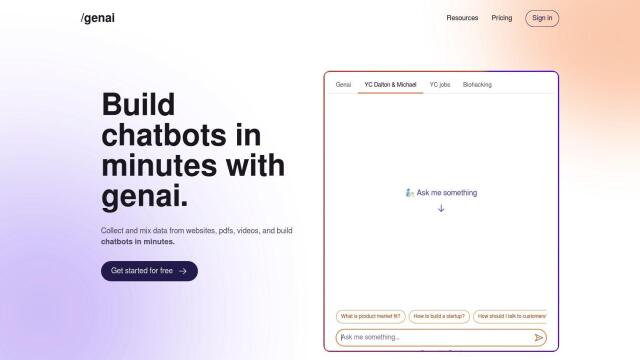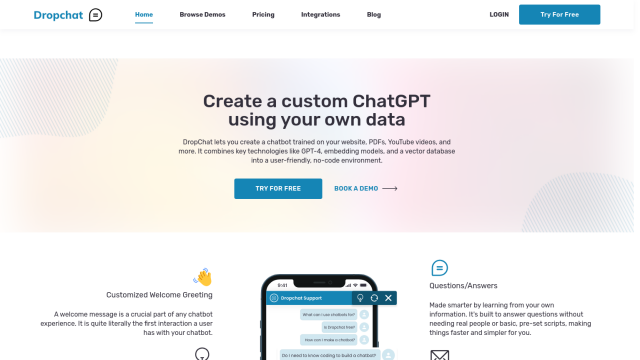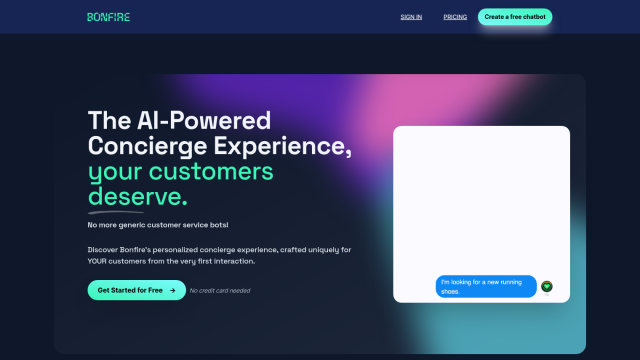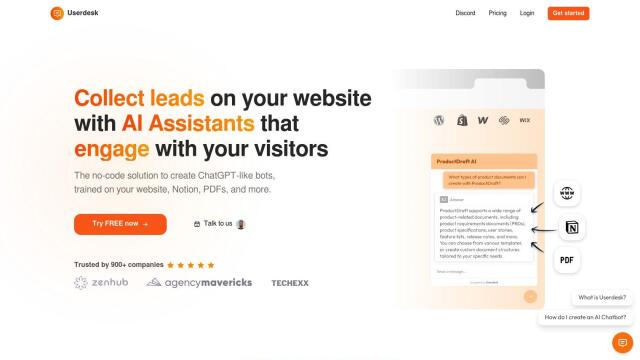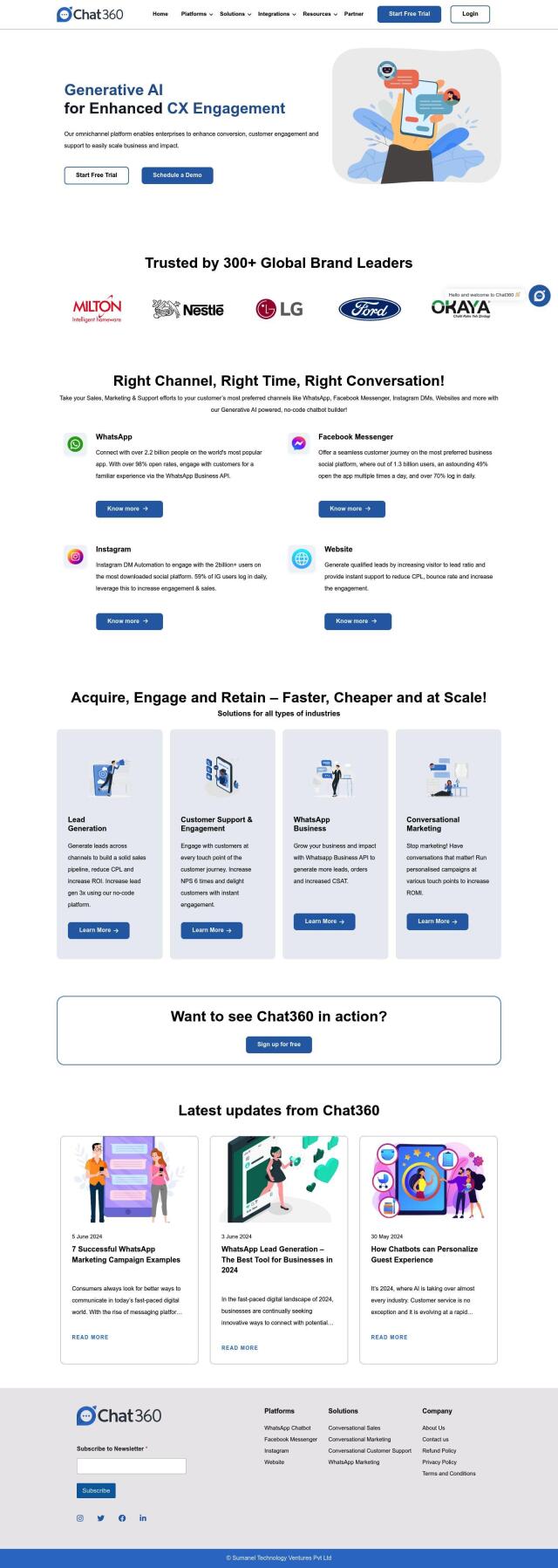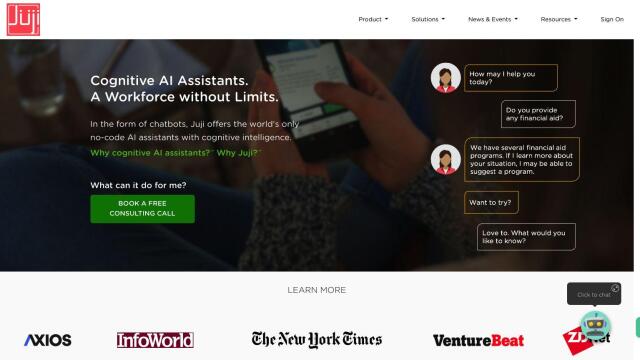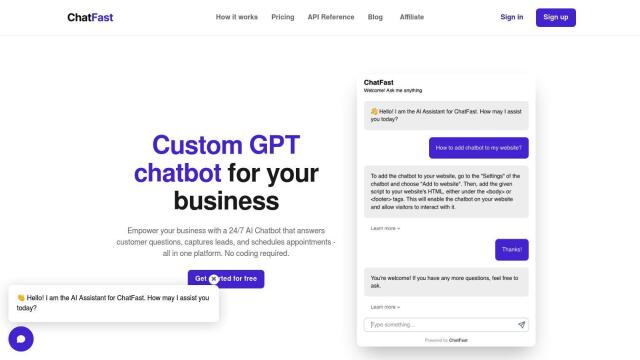Question: Is there a platform that offers a flexible and powerful way to build chatbots for various use cases, such as a coding buddy or business growth advisor?

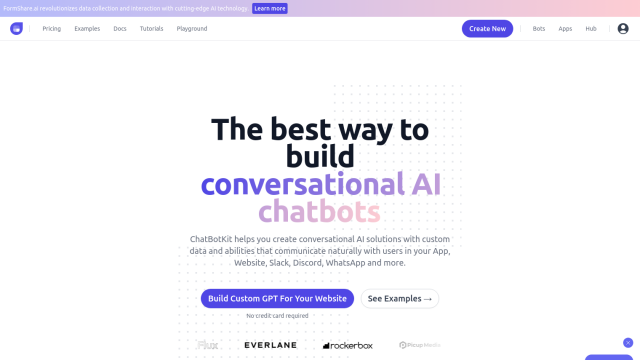
ChatBotKit
If you want a flexible and powerful foundation for building chatbots, ChatBotKit is a good option. It lets developers and nondevelopers build AI chatbots that converse in natural language and can be deployed across a variety of interfaces. With support for multiple languages, custom data sets and integration with popular chat apps like Slack, Discord and WhatsApp, it's good for a wide range of use cases including AI experiences, personas, education, automation, sales and support. The platform's powerful API, SDKs and security features make it a good option for quickly and securely deploying conversational AI.

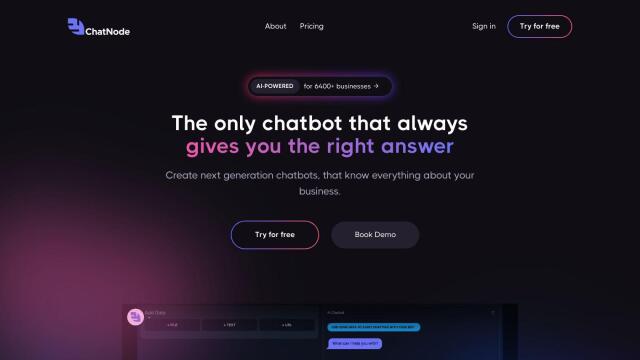
ChatNode
Another option is ChatNode, a full-stack platform for building advanced AI chatbots that offer business insights and improve customer service. It can handle multiple data sources, customization and flexible integration options, including website embedding and Slack channel integration. ChatNode supports 95 languages and is GDPR compliant, making it a good option for automating customer support tasks and generating more revenue with efficient and scalable support experiences.

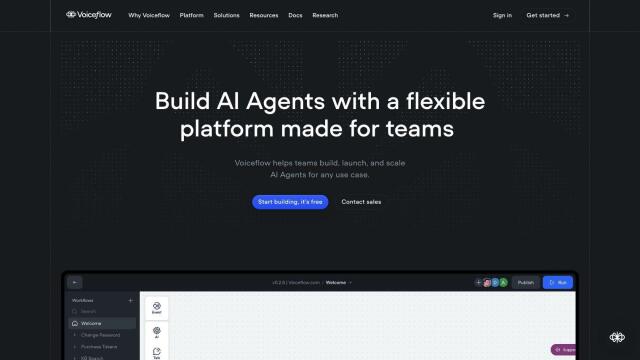
Voiceflow
If you prefer a collaborative approach, Voiceflow is a platform for building and scaling chat and voice AI agents. It has a visual drag-and-drop builder, multi-step workflows and a range of integrations with analytics tools, CRM systems and e-commerce platforms. Voiceflow is good for automating customer support, creating in-app copilots and designing conversations, so it's a good option for improving customer interactions and business operations.

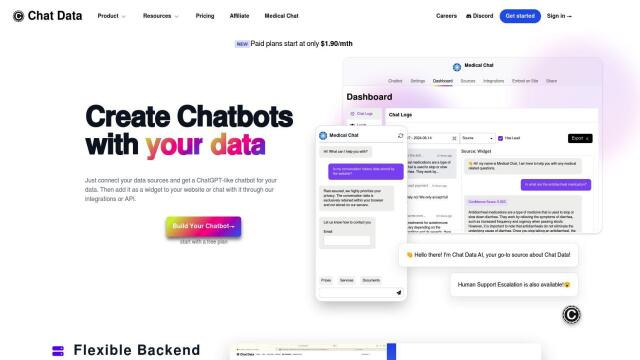
Chat Data
Finally, Chat Data is a flexible tool that lets you train and deploy chatbots with your own data for a more personalized experience. It includes features like human support escalation, e-commerce integration and HIPAA-compliant medical chat models. With a range of pricing tiers and third-party tool integrations, Chat Data is a good option for businesses that want to use their own data in chatbot development.

